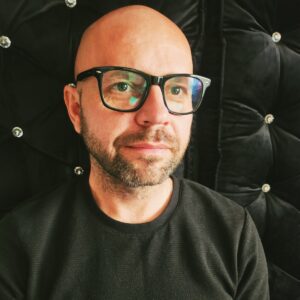Reginald Beckford, who once had a deep fear of sharks, never thought he would become a scuba diving instructor. However, his fascination with the underwater world turned into a passion. Now, at the age of 32, Reginald has become a key figure in protecting the world’s third-largest coral reef, which is currently facing the most severe known outbreak of coral disease.
In 2019, the Turks and Caicos Islands were identified as the seventh Caribbean location affected by the stony coral tissue loss disease (SCTLD). This disease, which emerged nearly ten years ago off the coast of Florida, has since spread to 28 countries, devastating coral populations. Reginald, who once worked as a night watchman on a dive boat, now dives as a volunteer to save the corals.
His diving adventure began unexpectedly but quickly turned into a passion for protecting coral reefs. The pristine shores of the Turks and Caicos, a British territory, have long attracted tourists, but the rapid spread of the disease threatens not only the reefs but also the economic stability of those dependent on marine tourism.
After becoming a certified diving instructor, Reginald has trained over 100 students, many of whom have joined him in efforts to mitigate the destructive effects of SCTLD. These efforts are coordinated by the TC Reef Fund, a non-profit organization reliant on donations and mainly staffed by volunteers, working in cooperation with the local environmental department.
The SCTLD disease is characterized by rapid and aggressive destruction of coral tissue, affecting over 30 species of LPS corals, often killing them within weeks of infection. The most affected species include:
- Meandrina meandrites;
- Diploria labyrinthiformis;
- Colpophyllia natans;
- Dendrogyra cylindrus;
- Pseudodiploria strigosa. These species play a crucial role in coral reef ecosystems, creating structures that provide shelter and habitats for various marine organisms.
The causes and mechanisms of this disease are still under investigation, but it is clear that its impact on coral populations is devastating.
Part of the strategy to mitigate the effects of this disease is the use of antibiotic paste on sick corals, which has proven effective in slowing the spread of the disease, although it does not prevent reinfection. This method allows coral colonies to survive long enough to reproduce and sustain their population.
Others have also joined the fight against this disease, such as former teacher Arenthia Baker, who moved to the islands in 2021. Arenthia devotes a lot of time to volunteering at the Reef Fund. She describes her decision to move and join the conservation efforts as one of the best in her life.
Warmer seas in recent years have worsened the situation, causing widespread coral bleaching throughout the Caribbean, which increases their susceptibility to diseases. Despite the immense challenge, Arenthia remains optimistic about defeating SCTLD.
The recent discovery by Smithsonian researchers of an effective bacterial probiotic for treating SCTLD is significant because it offers an alternative to using antibiotics (amoxicillin). Probiotics can help fight the disease without the risk of creating antibiotic-resistant bacterial strains, which is a significant advance in the pursuit of a safer and more sustainable way to treat coral diseases.
Additionally, two underwater coral nurseries and a land-based biobank have been established on the Turks and Caicos Islands — the first in the British Caribbean territories — with support from the John Ellerman Foundation. This bank serves as a “coral ark,” preserving samples of the most endangered species to help maintain their genetic diversity.
About the author

Grzegorz Bubak
My fascination with marine aquariums began over two decades ago when I stumbled upon an article about this topic in a magazine. Since then, the underwater world has become my obsession and passion, shaping my everyday life. I started my adventure with marine aquariums with soft corals, which were my first step into this fascinating world. Over time, captivated by the diversity and beauty of SPS corals, I decided to focus on their cultivation, which continues to fill me with constant wonder.
Thanks to my experience and passion for marine aquariums, I am ready to share my knowledge and expertise with other enthusiasts in this field. I am happy to be part of the Reef Pedia community, which serves as an invaluable source of information for all marine aquarium lovers.

